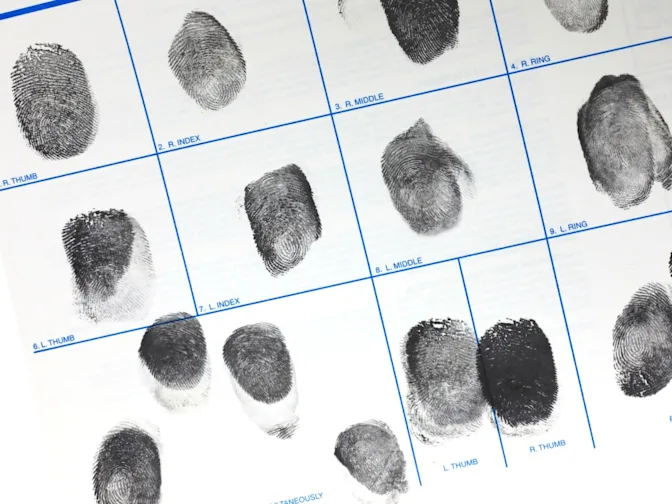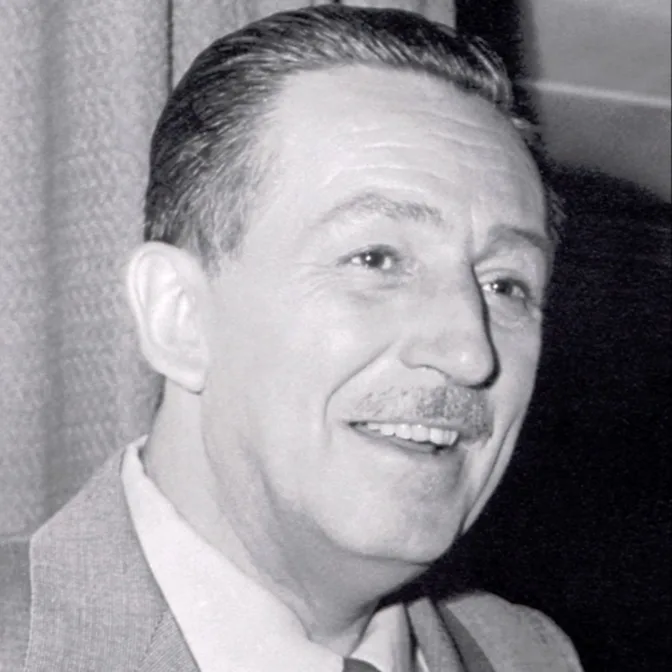
8 Secrets the FBI Doesn't Want You to Know
The United States Federal Bureau of Investigation, known for its high-profile investigations and role in protecting national security, also has a history filled with surprising and sometimes strange activities. From keeping tabs on celebrities to investigating unexpected threats, here are eight secrets the FBI might prefer to keep under wraps.
1. Your Fingerprints Are Probably on File

Even if you've never been arrested, there's a good chance your fingerprints are already in the FBI's database. If you've ever had a background check for a job, applied for a driver's license, or bought a firearm, your fingerprints are likely stored in the FBI's Integrated Automated Fingerprint Identification System (IAFIS). This massive database, located in Clarksburg, West Virginia, holds over 100 million fingerprint records.
2. Walt Disney Was a Secret FBI Informant
 Walt Disney in 1954. Photo courtesy of NASA. Public domain.
Walt Disney in 1954. Photo courtesy of NASA. Public domain.
You may know Walt Disney as the creator of some of the most beloved animated films of all time, but few people realize he also worked as a secret informant for the FBI. From 1940 until his death in 1966, Disney reported on "un-American activities" in Hollywood, sharing the names of suspected Communists. He was even designated a "full Special Agent in Charge Contact" by 1954.
3. They Keep a Lot of Hair

The FBI maintains a large collection of hair samples — over 5,000, to be exact. These samples, which include both human and animal hair, are used to assist in criminal investigations. Forensic scientists compare hair from crime scenes to those in the FBI's files to help determine ethnicity and other identifiers.
4. They Investigated Extra-Sensory Perception (ESP)
In an attempt to bolster their espionage efforts, the FBI once explored the use of extrasensory perception (ESP). They even conducted research to see if psychic abilities could be used to gather intelligence. However, after years of study, the FBI concluded that there was no scientific support for using ESP in investigations.
5. They Spent Years Investigating a Song
The FBI's list of peculiar investigations includes a two-year inquiry into the song "Louie Louie" by The Kingsmen. After receiving complaints that the lyrics were obscene, the FBI launched an extensive investigation, conducting hundreds of audio tests. The final 120-page report concluded that the lyrics were unintelligible and not obscene, but only after significant time and resources were spent.
6. They Tracked Terrorists Using Falafel Sales

In a bizarre and short-lived operation, the FBI once monitored falafel sales in California in a bid to catch Iranian terrorists. The idea, dubbed "Total Falafel Awareness," was that a spike in falafel sales might point to the presence of Iranian secret agents. The program was quickly shut down for being potentially illegal and lacking in any credible basis.
7. They Keep Files on Celebrities
 Marilyn Monroe in a publicity photo for Niagara in 1953. Photo by Gene Korman. Public domain.
Marilyn Monroe in a publicity photo for Niagara in 1953. Photo by Gene Korman. Public domain.
The FBI has monitored many famous figures, keeping detailed files on individuals like Marilyn Monroe, John Lennon, and Lucille Ball. Many of these files were opened over concerns about alleged communist ties. More recently, they tracked Sacha Baron Cohen during the making of "Borat" due to numerous complaints about a "Middle Eastern man" driving across America in an ice cream truck.
8. They Were Not Fans of Going Digital

Despite being at the forefront of national security, the FBI did not fully transition to digital record-keeping until 2012. The bureau had planned to implement a new electronic system in 2009, but delays due to coding issues pushed the launch back by two-and-a-half years, costing an extra $26 million. Until then, they relied primarily on paper files to track their cases.
References: 11 Fascinating Facts About the FBI You Won't Believe Are True | 17 Secrets the FBI Doesn't Want You to Know























